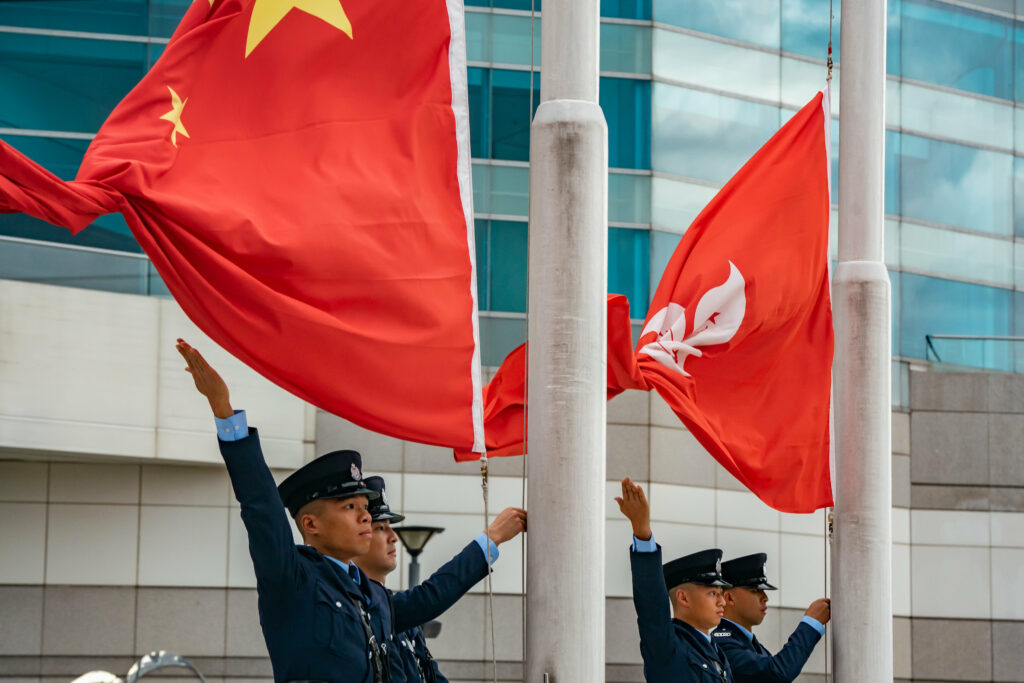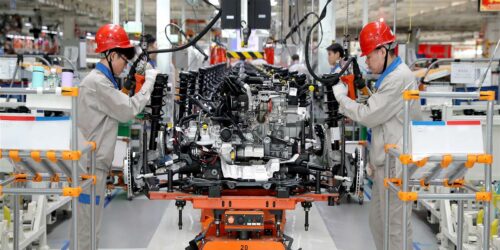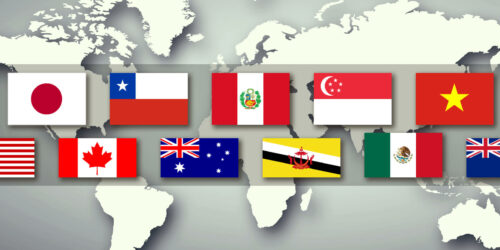Geopolitics Report – Implications of China’s New Security Law on Hong Kong and the World

Geopolitics Report – Implications of China’s New Security Law on Hong Kong and the World
Table of Contents
1. Historical perspective of Hong Kong up to the signing of the Sino British Agreement of 1984
2. The “Handover” agreement between China and Europe of Hong Kong
3. An explanation as to why China changed the Agreement. How was this done? Who agreed?
4. Implications to the individuals and businesses in Hong Kong
III. Conclusion and Recommendations to management
I. Purpose of the Report
This report aims to evaluate the proposed decision of establishing a regional head office in Hong Kong by a large Canadian Multinational Enterprise (MNE) with its possible implications in light of the recent developments that happened in Hong Kong regarding the National Security Law passed by the Chinese Government.
This paper includes a brief historical introduction of Hong Kong up to the signing of the Sino British Agreement dated 1984. We have discussed the handover of Hong Kong to China, and the terms of the return agreement dated 1997. Further, China’s recent impose of National Security Law in Hong Kong has been introduced, and the possible implications of the same on individuals and businesses in Hong Kong have been assessed. Lastly, we have argued the potential risks associated with continuing operations in Hong Kong and introduced other country-wise options available to the company to continue to its East Asia operations.
II. Content of Report
1. Historical perspective of Hong Kong up to the signing of the Sino British Agreement of 1984
The history of Hong Kong goes a long way back into the history of humankind. Many stone tools and objects have been discovered as evidence that humans lived in Hong Kong over 20,000 years ago. However, historical records had not accumulated considerably until Hong Kong came under the Qin Dynasty of imperial China around 221 BC.
In 1839, as an effort of stopping smuggled Opium, a highly addictive drug, from British drug traffickers, Qin Dynasty declared war with the British Empire and lost. Defeated in both Opium wars, China was forced to give up Hong Kong to the British Empire in 1842 under the Treaty of Nanjing. According to this treaty, the British successfully demanded to open more ports and made Hong Kong a valuable trading post at the mouth of the Pearl River (Blakemore, 2019). This marked the end of the imperial era in Hong Kong.
Between 1842 and 1898, the British Empire gradually took control over three main areas of this country: Hong Kong Island, and the other two mainland regions Kowloon and the New Territories. In the case of New Territories, it was a 99-year lease indicated that if nothing changed, the territory of Hong Kong was scheduled to return to China in the year 1997. In that period, the Japanese shortly interrupted when it seized the control of Hong Kong for 4 years during World War 2 (Wallace, n.d).
2. The “Handover” agreement between China and Europe of Hong Kong
For most of the mid-19th century, Hong Kong was taken from China by the Europeans and was developed into a free port. The territory of Hong Kong after being under the British Colony for over ninety-five (95) years would be reverted to the Chinese government. July 1, 1997, both the China and Great Britain governments signed an agreement which was deemed as a “Handover” which resulted in China getting back to Hong Kong.
Singh (2016), stated that the “Handover” service was conducted in Hong Kong at their newly built Convention and Exhibition Centre in Wan Chai. Before midnight on June 30, 1997, the national flag of Great Britain was taken down and replaced with the national flag of China symbolizing the transfer of 6.5 million citizens. Individuals that were a part of the ceremony included Prince Charles, Tony Blair (Great Britain’s Prime Minister), Chris Patten (Governor of Hong Kong), Sir Charles Guthrie (British Chief of Defense), Li Peng (China’s Premier) and Jiang Zemin (China’s President).
Under the return of the Hong Kong region back to the Chinese government, a condition of the agreement was that China would administer a “one country, two systems” principle (BBC, 2017). This would ensure that Hong Kong would for the next fifty (50) years ending 2047, would still have their autonomy over their legal systems, have their own political party, and individual rights such as freedom of speech and assembly. Additionally, 6.5 million Hong Kong citizens would continue having the same lifestyle (social system) and economic systems. China would however have full control over its defense and foreign affairs. The region of Hong Kong was called the “special administrative region (HKSAR)”. The “one country, two systems” principle was based on the fact that China was ruled under the socialist system which Hong Kong was governed under a capitalist or democratic system. With that, both countries were able to keep their different government structures (Johny, 2019).
3. An explanation as to why China changed the Agreement. How was this done? Who agreed?
BBC (2017) stated that in 2014, the citizens of Hong Kong could select their own chief executive, however, they would have to do so from a pre-approved list of nominees they provided. This caused the starting of uprising protests by many Hong Kong residents as they strongly believed China have been constantly interfering with political systems or traditions which prevented Hong Kong from being fully democratic. China also wanted to implement a new extradition bill in Hong Kong that would see many different countries sending extradition requests to the government of Hong Kong for criminal suspects. These countries would include Macau, China, and Taiwan. This raised controversial issues as many Hong Kong residents believed China had an unsafe and unfair judicial system (BBC, 2019). This also caused many uproars and as such the extradition bill was withdrawn, but many protests were still taking place.
In addition, BBC (2020) mentioned that this new legislation imposed on Hong Kong by China on the 30th of June 2020 would make fundamental changes to Hong Kong legal system and a reduction in their autonomy. Under the basic law, Article 23 within the agreement signed between China and the British, Hong Kong was entitled to have their own national security but that never occurred due it been unpopular. Now the Chinese government, using the same Article 23, made it technically possible to introduce the new law once it is listed under Annex III, for which some were. It was a loophole that China found and exploited. This law was created in secret without any Hong Kong representative. According to BBC (2020), China developed this security legislation as a way of gaining new powers in Hong Kong.
According to the Canadian Press (2020), Great Britain’s foreign minister. Mr. Boris Johnson stated that a new security law established by the Chinese government violated and would change the Hong Kong handover agreement.
4. Implications to the individuals and businesses in Hong Kong
Obviously, the law will affect the lives of people, and the operations of companies in the country. Whereas the greatest impact will be on Hong Kong people, the law also includes multiple provisions that may affect foreign entities, businesses, media, NGOs, etc. Here are some expected implications that we would like to highlight:
- The law criminalizes four broad activities (Hong Kong Free Press (Ed.), 2020):
- Secessionism – breaking away from the country
- Subversion – undermining the authority of the central government
- Terrorism – using violence or intimidation against people
- Collusion with foreign or external forces
Since the language is broad, and it’s not certain or detailed that what actions are considered any of these four actions, it may give authorities to chance of broad application of the law. Considering that the maximum sentence for each of these crimes is life imprisonment, uncertainty, and ambiguity of the definition of these activities is not something that Hong Kong citizen will enjoy.
- Freedom of expression: Hong Kong has long been known as a “city of protest” with a vibrant opposition movement, unshackled media, and dynamic public discourse. The law appears to no longer allow that. There are already reports of citizens deactivating their social network accounts, deleting their posts on the internet. The law is likely to be the end of pro-democracy marches which are famous in the city too (Griffiths, 2020).
- Foreign residents: Article 34 of the law explicitly states that the foreign residents in Hong Kong can be expelled if suspected of violating the law, regardless of conviction.
Further, the language gets broader and more interesting with article 38 where it’s asserted that ”The law will apply to offenses committed from outside the Region by a person who is not a permanent resident of the Region”. This is basically extraterritorial power (?!) that is claimed.
- NGOs: The life of NGOs, especially the ones that support democracy, freedom, independence of Hong Kong, will be difficult too from now on as the law tightens the management of foreign non-governmental organizations and news agencies. Article 29 of the law states that ”anyone who directly or indirectly receives instructions, control, funding or other kinds of support from a foreign country or an institution, organization or individual could be guilty of an offense’’. Financial aid, gains, rewards, or funds linked to such offense may also be confiscated.
- Judicial independence: In case of doubt,Beijing will have the sole discretion over how the law should be interpreted, not Hong Kong judicial bodies. Besides, the law gives power to China to form a National Security Committee to oversee the violations of the law. Such a committee will not be subject to judicial review or any HK law. These are likely to undermine the judicial independence of Hong Kong.
- Justice: More worrisomely, right to a trial will be able to be suspended in certain circumstances, and cases can be heard in secret. This will allow some trials to be heard behind closed doors (Tsoi & Wai, 2020).
- Foreign businesses: The law will adversely affect Hong Kong’s attractiveness as a leading global business, finance, and trade hub in its region which acts as a bridge between China and overseas countries. More threateningly, it allows the companies to be fined if convicted under the law. Some can claim that the conviction of companies will be limited; however, their operation and/or profit is likely to be affected either way. It’s because when people are in fear, or contemplating to leave the country, they won’t buy products, or they won’t spend money within the country. So, the profits will indirectly be affected by the forces implemented to the customers and consumers.
- Foreign trade: Many countries are changing their bilateral relations and trade policies with Hong Kong. Trudeau suspended the extradition treaty with Hong Kong and indicated that the sensitive goods being exported to Hong Kong will be treated as if they’re being sent to China. Trump declared that the US would remove Hong Kong’s special trade status which gives it a slightly different treatment from the mainland. The US also ended defense and some technology exports to the country (Bloomberg News (Ed.), 2020).
- Foreign investment: Now most of the world won’t believe the “two systems, or Hong Kong is not a free capitalist market anymore, that will cause capital outflow and reduction and flight of foreign capital investment.
- International relations: When Canada and the US were pulling back, some other countries extended their relationships with Hong Kong. The UK declared additional rights will be granted to Hong Kong people who hold a British passport and extended their right of stay in the UK from 6 months to 5 years which will allow them to apply for citizenship afterward. Taiwan announced a new office will be established in Taiwan to help HK asylum seekers (Tsang, 2020).
- Media: The law allows prosecutions based on leaking “state secrets” to overseas media, governments, and organizations. This will make the lives harder for media, journalists, and activists that operate in the city.
5. Assessment of the risks involved for the company to continue its strategy to establish an East Asia operation in Hong Kong
As reported by BBC News, in the past two years, the political relationship between Canada and China has been affected by the arrest of Meng Wanzhou in Vancouver, who is vice chairman of the board and chief financial officer of China’s largest private company, at the request of The US government. Soon after, in retaliation, two Canadian citizens Michael Spavor and Michael Kovrig were arrested, accused of espionage and attack on Chinese national security, (BBC News, 2020).
According to Srinivas Mazumdaru (2020), the new national security law on Hong Kong will bring more tensions between China’s relations and western countries. Some critics state that the Chinese Communist Party led by its president Xi Jinping seeks to eliminate the economic freedoms of which Hong Kong got since 1997 when China agreed to respect its two-system economic model until 2047, (Mazumdaru, 2020).
Hong Kong is no longer autonomous enough from China, and this poses a high risk for Canadian companies operating in Hong Kong because they could face arbitrary arrests and sanctions come from the new laws implemented by the Chinese government.
The last July 3, 2020, the Honorable François-Philippe Champagne, Minister of Foreign Affairs, declared that the Canadian government’s concern about the approval of the new security law in Hong Kong that violates the Sino-British declaration agreed in 1997. Consequently, the favorable tariff agreement and the extradition agreement between Canada and Hong Kong will be revoked (Global Affairs Canada, 2020). It represents a risk to companies currently operating in Hong Kong, as they will no longer enjoy the same benefits and tariff rates for products and services that trade with Canada from now on.
Another risk derived from the new national security law is a decrease in foreign investment caused by concern and uncertainty about the application of the new rules that will regulate companies and multinationals in Hong Kong.
Conforming with Marowits (2019), The violent protests in Hong Kong in favor of democracy have caused great concern in Canadian companies for the safety of their employees due to social and political instability. Canadian CEO of Patrick Doyle American Express Global Business Travel stated that the current situation in Hong Kong requires Canadian companies to review and evaluate all policies and procedures that put their workers at risk when traveling to Hong Kong (Marowits, 2019).
Hong Kong’s economy in the first quarter of 2020 decreased by 8.9%, having entered a recession in 2019 as a result of violent protests in defense of democracy and rejection of new policies proposed by the government Chinese, trade disputes between China and the United States, and recently due to the COVID 19 pandemic that has negatively impacted its main economic sectors, (BBC News, 2020).
6. Assessment of options available to the company to continue to establish an East Asia operation but elsewhere?
Hong Kong may be a great option to establish the headquarters of a Canadian Multinational Enterprise. However, as mentioned above, there are several arising issues that Hong Kong is currently experiencing that may be alarming in pursuing this expansion. There are several East Asian countries that can be taken into consideration.
According to the Government of Canada (2020), a free trade agreement called Comprehensive and Progressive Agreement for Trans-Pacific Partnership (CPTPP), has a free trade agreement between Canada and 10 other countries in the Asia-Pacific regions namely Australia, Brunei, Chile, Japan, Malaysia, Mexico, New Zealand, Peru, Singapore and Vietnam. Thus, these countries are giving trade and investment access with Canada on key markets in Asia and Latin America. Therefore, the researchers recommend three (3) potential East Asian country to consider such as Japan, Singapore and Vietnam.
Japan
In March 2012, Canada’s Prime Minister Harper and Japan’s Prime Minister Noda, at that time, released a comprehensive and high-level economic partnership agreement (EPA) that pertains to free trade negotiations between Canada and Japan (Government of Canada, 2016).
Additionally, Canada and Japan have numerous international organizations that they are partnered with, namely the G8, G20, APEC, the ASEAN Regional Forum, and the OECD. As part of their various partnerships, both countries have committed to each other on promoting economic vitality, cooperative political relations and continuous development in the Asia-Pacific region (Government of Canada, 2016).
According to the Government of Canada (2016), Japan is Canada’s 4th largest trading partner and has the most source of foreign direct investment from the Asian region. Japan and Canada are highly participating in trade negotiations through the bilateral EPA and they have an active participation in the Trans-Pacific Partnership (TPP). Working together in the TPP, both countries aimed to improve a greater cooperation in the Asia-Pacific region. Likewise, Canada-Japan Economic Partnership Agreement (CJEPA) was created to provide greener pastures in times of needs of the bilateral relationship of EPA.
Japan has a predominant economic performance known internationally. They have a free market economy that made the country as a 4th biggest in the world. They are known for having the largest electronic industry and 3rd largest automobile industry worldwide. Another point to consider, Japan’s economy is known for being efficient and competitive in the exporting sector. Japan has a GDP of 5,081,769.54 USD (World Bank, 2019).
Singapore
After Singapore gained its full independence in 1965, Canada was first country that were able to establish diplomatic ties with. Singapore s predominantly known for being one of the most important partners in Southeast Asia because of its economic performance and developments. Canada and Singapore strong cooperate with numerous multilateral partnerships namely: Asia-Pacific Economic Cooperation (APEC), World Trade Organization (WTO), Commonwealth, and Association of Southeast Asian Nations (ASEAN).
According to the Government of Canada (2020), Canada and Singapore have participated in numerous trade and investment agreements such as, World Trade Organization Agreement on Trade Facilitation (TFA), Comprehensive and Progressive Agreement for Trans-Pacific Partnership (CPTPP), Trade-Related Aspects of Intellectual Property Rights (TRIPS), Trade-related Investment Measures (TRIMS), General Agreement on Tariffs and Trade 1994 (GATT), General Agreement on Trade in Services (GATS), World Trade Organization Information Technology Agreement (ITA), and World Trade Organization Agreement on Government Procurement (GPA).
As stated on the Ministry of Foreign Affairs Singapore (2020), Canada and Singapore have a bilateral cooperation in wide-range areas of trade, security and defense, education, science and technology and Arctic related issues. Similarly, with Canada, Singapore have a multi-cultural population that is composed of range of values, customs and perspectives. With this, Singapore promotes an open dialogue and exchange of ideas in programs and policies about multiculturalism.
Importantly, in 2018, Singapore was Canada’s largest direct investment partner within Southeast Asia amounting $5.85 billion. Also, Canada’s exports in merchandise hit $1.27 billion composed of mechanical machinery, electrical machinery and equipment, and scientific instruments. Lastly, in 2018, the services trade between Canada and Singapore amounted to $3.07 billion.
Vietnam
Another East Asian country to consider is Vietnam. Vietnam and Canada have a strong international trade and relations under the partnership of Association of Southeast Asian Nations (ASEAN) (Euromonitor, 2019). Since 2015, among the ASEAN countries, Vietnam has been Canada’s largest trading partner (Government of Canada, 2019).
In line with Canada and Vietnam’s partnership in the CPTPP, it provides a definite rules and regulations about trading environment and enhancing their market access for both exporters and investors and promote a duty-free accessibility for trade goods between both countries. Importantly, it removes tariffs for importing and exporting products. On the other hand, CTPP gives Canadian companies to establish their business in Vietnam with greater confidence through protection policies against discriminatory treatment. (Government of Canada, 2020).
According to the Government of Canada (2019), as for Canadian companies, they have wide-range opportunities and investment potentials in Vietnam, specifically on the sectors of education, information and communications technology (ICT), agriculture and agri-food, infrastructure, clean technology, and aerospace. The Canadian service industry also gain more on access and greater communication transparency in Vietnam in industries like environment and business services.
III. Conclusion and Recommendations to management
Hong Kong, recognized as one of the four Asian tigers along with Singapore, Taiwan, and South Korea thanks to its strong economic and industrial growth after World War II, which has allowed them to be perceived worldwide as one of the most prosperous places to do business in the world. However, its political and economic situation has been negatively affected in the last year by events such as the new security law imposed by the Chinese government, the violent protests by its citizens, the measures taken by some governments to eliminate the preferences of the tariff rates, and the ongoing COVID 19 crisis that puts its economic stability at risk.
After analyzing the current situation between Hong Kong and Canada, we conclude that the establishment of a regional headquarters in Hong Kong currently represents a high risk due to the ongoing political situation facing Hong Kong. Therefore, it is advisable to consider another country strategically located in the East Asia area, such as Singapore, that shares similar characteristics with Hong Kong like its economic development, political stability, and financial security.
Canada and Singapore have always maintained warm and friendly relationships, Canada was the first country to establish diplomatic relations with Singapore after its independence from the British colony in 1965, and both countries are part of CPTPP trade agreement that represents 13.5% of world GDP, (Ministry of Foreign Affairs Singapore, 2019).
The Comprehensive and Progressive Agreement for Trans-Pacific Partnership (CPTPP), allows Canada to access one of the fastest-growing and most dynamic markets worldwide, allowing it to accelerate its economic development, to be more competitive worldwide; Also, Singapore is the third most important financial center after London and New York.
As stated by the Government of Canada (2020), Singapore is a very relevant partner for Canada because it represents the largest source of foreign direct investment from the countries of Southeast Asia. Besides, Canada and Singapore share interests in academic collaboration in the public and private sectors, support for SMEs, science, technology, and innovation, as well as access to venture capital. Singapore is the third most important financial center after London and New York, (Government of Canada, 2019).
The CPTPP benefits Canadian exports to Singapore and vice versa by eliminating tariffs on most Canadian products that are traded. Singapore protects Canadian companies from unfair and discriminatory treatment and offers greater transparency. Besides, it gives Canadian companies greater confidence to invest in Singapore. Canadian food exporting companies benefit from Singapore because Singapore imports 90% of its food.
References
BBC News. (2020). Meng Wanzhou: Trudeau rejects calls to release top Huawei executive. BBC News. Retrieved from https://www.bbc.com/news/world-us-canada-53183654
BBC. (2019). Hong Kong-China extradition plans explained. BBC News. Retrieved from https://www.bbc.com/news/world-asia-china-47810723
BBC. (2017). Hong Kong’s handover: How the UK returned it to China. BBC News Retrieved from https://www.bbc.com/news/world-asia-china-40426827
BBC. (2020). Hong Kong security law: What is it and is it worrying?. BBC News. Retrieved from https://www.bbc.com/news/world-asia-china-52765838
Blakemore, E. (2019). How Hong Kong’s complex history explains its current crisis with China. National Geographic. Retrieved July 20, 2020 from https://www.nationalgeographic.com/culture/topics/reference/hong-kong-history-explain-relationship-china/#close
Bloomberg News (Ed.). (2020). What Hong Kong’s new security law means for business. Retrieved from https://theprint.in/economy/what-hong-kongs-new-security-law-means-for-business/452145/
Canada Press (2020). Everything GP: UK: China’s new security law violates Hong Kong agreement. Retrieved from https://everythinggp.com/2020/07/01/uk-chinas-new-security-law-violates-hong-kong-agreement/
Clarke, D. (2020). Hong Kong’s National Security Law: a first look. Retrieved July 19, 2020, from https://thechinacollection.org/hong-kongs-national-security-law-first-look/
Global Affairs Canada. (2020). Canada takes action following passage of National Security Legislation for Hong Kong. Government of Canada. Retrieved from https://www.canada.ca/en/global-affairs/news/2020/07/canada-takes-action-following-passage-of-national-security-legislation-for-hong-kong.html
Government of Canada. (2019, Aug 29). CPTPP partner: Singapore. Retrieved from https://www.international.gc.ca/trade-commerce/trade-agreements-accords-commerciaux/agr-acc/cptpp-ptpgp/countries-pays/singapore-singapour.aspx?lang=eng
Government of Canada (2016, December 16). Canada-Japan Economic Partnership Agreement (CJEPA). Retrieved July 27, 2020, from https://www.international.gc.ca/trade-commerce/trade-agreements-accords-commerciaux/agr-acc/japan-japon/fta-ale/info.aspx?lang=eng&_ga=2.113969351.1527110226.1595877383-1168944680.1595877383
Government of Canada (2019, November 4). Canada-Vietnam Relations. Retrieved July 27, 2020, from https://www.canadainternational.gc.ca/vietnam/bilateral_relations_bilaterales/index.aspx?lang=eng.
Government of Canada (2019, November 4). CPTPP partner: Vietnam. Retrieved July 27, 2020, from https://www.international.gc.ca/trade-commerce/trade-agreements-accords-commerciaux/agr-acc/cptpp-ptpgp/countries-pays/vietnam.aspx?lang=eng
Government of Canada (2020, January 10). Canada and the Asia-Pacific. Retrieved July 27, 2020, from https://www.international.gc.ca/world-monde/international_relations-relations_internationales/asia_pacific-asie_pacifique/index.aspx?lang=eng
Griffiths, J. (2020). Why China’s national security law could change Hong Kong forever. CNN. Retrieved July 19, 2020, from https://www.cnn.com/2020/07/01/asia/hong-kong-national-security-law-intl-hnk/index.html
Hong Kong Free Press. (2020). Official English translation of the Hong Kong national security law. Retrieved from https://hongkongfp.com/2020/07/01/in-full-english-translation-of-the-hong-kong-national-security-law/
Johnny, S. (2019). The Hindu: Explained | What is China’s One Country Two Systems policy? Retrieved from https://www.thehindu.com/news/international/explained-what-is-chinas-one-country-two-systems-policy/article29279828.ece
Kirby, J. (2020). China’s new national security law and what it means for Hong Kong’s future, explained. Retrieved from https://www.vox.com/2020/7/2/21309902/china-national-security-law-hong-kong-protests-us-sanctions
Marowits, R. (2019, Sep 23). How Hong Kong protests are changing Canadian corporate risk management. Canadian Underwriter. Retrieved from: https://www.canadianunderwriter.ca/risk/how-hong-kong-protests-are-changing-canadian-corporate-risk-management-1004168772/
Mazumdaru, S. (2020, May 29). Hong Kong: China-US tensions put Asia’s financial hub at risk. DW. Retrieved from https://www.dw.com/en/hong-kong-china-us-tensions-put-asias-financial-hub-at-risk/a-53614838
Ministry of Foreign Affairs Singapore. (2019). Canada. Retrieved from:https://www.mfa.gov.sg/SINGAPORES-FOREIGN-POLICY/Countries-and-Regions/Americas/Canada
Ministry of Foreign Affairs Singapore (2020). Canada. Retrieved July 27, 2020, from https://www.mfa.gov.sg/SINGAPORES-FOREIGN-POLICY/Countries-and-Regions/Americas/Canada
Singh, H. (2016, July 01). South China Morning Post: Everything you need to know about Hong Kong’s return to Chinese sovereignty. Retrieved from https://www.scmp.com/news/hong-kong/education-community/article/1983718/everything-you-need-know-about-hong-kongs-return
Tsang, D. (2020). Hong Kong national security law: how will it affect businesses? Uncertainty over overseas funds, foreign offices. Retrieved from https://www.scmp.com/news/hong-kong/hong-kong-economy/article/3091607/hong-kong-national-security-law-how-will-it-affect
Tsoi, G., Wai, L. C. (2020). Hong Kong security law: What is it and is it worrying? BBC. Retrieved from https://www.bbc.com/news/world-asia-china-52765838#:~:text=The%20new%20law’s%20key%20provisions,to%20stand%20for%20public%20office
Wallace, A. (n.d). How Hong Kong Came Under ‘One Country, Two Systems’ Rule. History. Retrieved July 20, 2020 from https://www.history.com/news/hong-kong-china-great-britain
World Bank Data (2020). GDP (current US$) – East Asia & Pacific, South Asia, Europe & Central Asia. Retrieved July 27, 2020, from https://data.worldbank.org/indicator/NY.GDP.MKTP.CD?locations=Z4-8S-Z7&most_recent_value_desc=true





